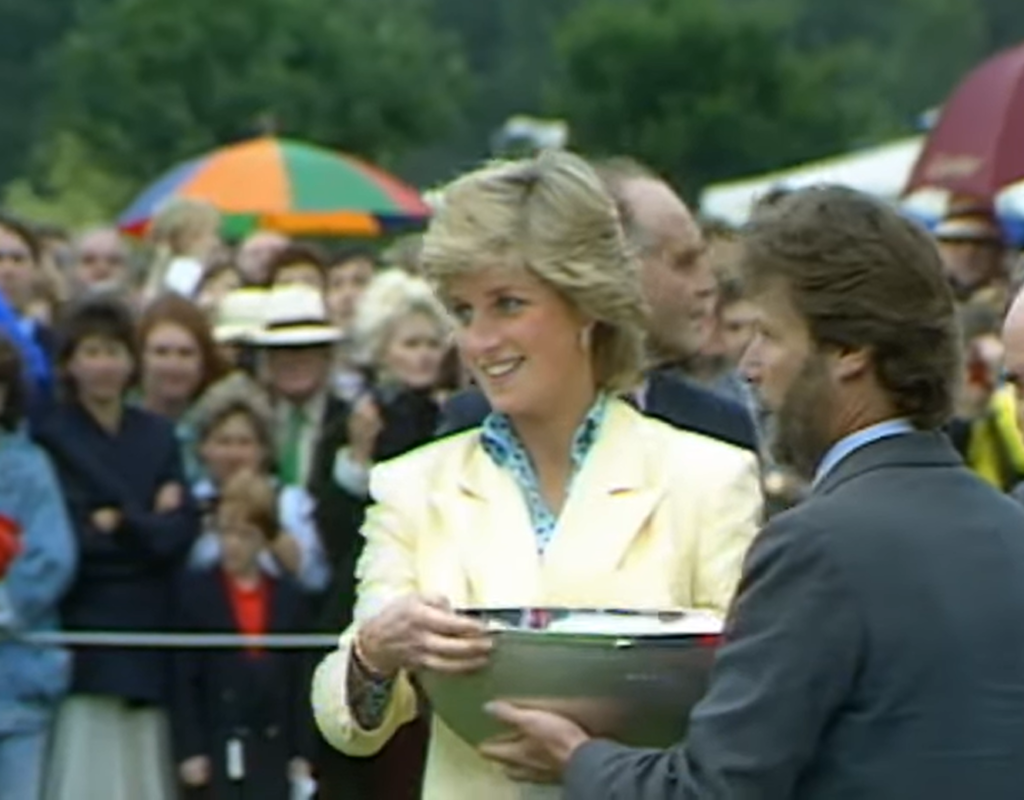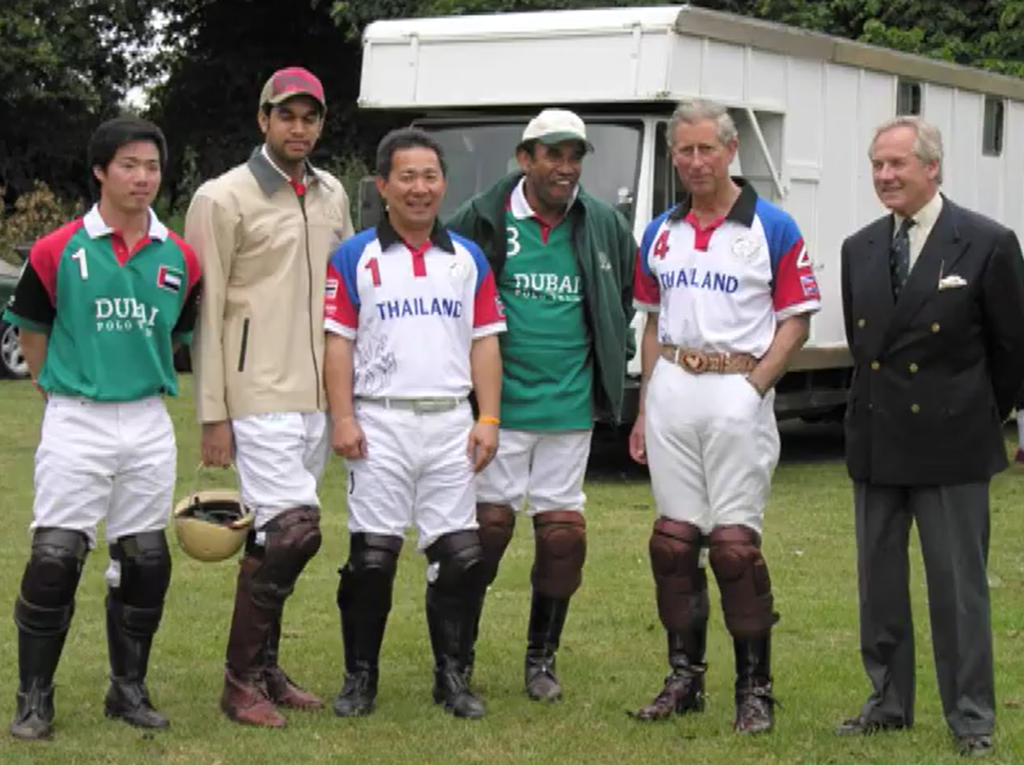It seems almost like a tradition, perhaps even a familial one ingrained in their bloodline, that every male member of the Windsor clan becomes an enthusiastic polo player. Prince George, at the tender age of five, is already on this path, having received his very own mallet as a gift from former President Barack Obama. It’s evident that he is being prepared to join his family in their cherished pastime.
The Royal Polo Tradition: A Question Worth Exploring
It raises an intriguing question: Why is polo such a common pursuit among the members of the royal family? Throughout history, polo has held a special place among the men of the Windsor family. Princes Harry, William, Charles, and even Princes Philip and George VI all shared a passion for the sport. Undoubtedly, the younger generation, including Prince George, Prince Louis, and Prince Archibald, will continue this time-honored tradition.
The Royal Affair with Polo
But how did polo become the sport of choice for the Windsor family? The historical origins of polo are shrouded in ambiguity, with its roots traced back to either Persia or Mongolia in unrecorded antiquity. It eventually found its way to the British Empire through India during the 19th century Commonwealth era. The royal devotion to polo elevated the British Kingdom’s standing in the sport to unprecedented heights.
The credit for popularizing polo within the royal family largely goes to Prince Philip. During his time stationed in Malta during World War II, he learned the sport from his uncle, Earl Mountbatten of Burma. Louis Mountbatten’s passion for polo was so intense that he authored the renowned book on the sport, “An Introduction to Polo,” under the pseudonym Marco, a playful nod to the sport’s historic roots.
By the war’s conclusion, Prince Philip was determined to bring polo back to England. He formed the Windsor Park team and eventually founded the Guards Polo Club, now one of the world’s most renowned clubs. He continued to play until the age of 50 when arthritis forced his retirement from the game. However, his love for sports endured, and he ventured into competitive four-in-hand carriage driving, a passion he continues to pursue today.
Prince Philip, in essence, initiated the family’s polo tradition by gifting his son, Prince Charles (the Prince of Wales), a mallet at the age of fifteen. Prince Charles began competing four years later, becoming a devoted polo player who experienced numerous injuries throughout his career. He once remarked that polo was his “one great extravagance” and dedicated a significant portion of his adult life to the sport. After enduring countless stitches, falls, concussions, and more, he was ultimately compelled to retire to the sidelines in 2015 and watch his sons play in his stead.
Princess Diana’s Polo Passion

Polo has become a cherished pastime for all members of the royal family. They have graced the sport with their presence at tournaments, actively participated, and relished the vibrant atmosphere from the sidelines. Queen Elizabeth, during her lengthy reign, maintained a consistent presence at polo matches. Vintage photographs from the mid-1950s capture her attendance, often adorned in striking full skirts.
Princess Diana, known for her willingness to diverge from royal conventions, frequently joined polo matches, occasionally choosing white trousers over the expected dresses.
Yet, polo transcended mere fashion; it served as a time for family bonding. Diana and her sons shared numerous iconic moments while watching Prince Charles in action on the polo field. Some of these intimate family moments were even captured by the cameras for posterity.
Polo in the Lives of William and Harry
Today, the enduring tradition lives on. Both William and Harry, having grown up witnessing their father’s polo prowess, now engage in the sport themselves, with their young families often joining as enthusiastic spectators.
Notably, the Duke and Duchess of Sussex share a close friendship with Nacho Figueras and his wife, Delfina Blaquier, the renowned Argentine polo power couple. Nacho has co-hosted and participated in various charitable polo events alongside Harry.
Polo, like many social sporting gatherings, has become synonymous with charitable fundraising. In 2018, Prince Harry participated in the Sentebale Polo Cup, an event that successfully raised over $1 million for children affected by HIV in Africa.
Yet, this is just the tip of the iceberg. Since 2007, the combined efforts of William and Harry have generated over $10 million for charitable causes through their involvement in polo events.

In the modern era, it is through charitable endeavors that polo finds its enduring significance within the House of Windsor. As members of the royal family, both princes are tasked with actively supporting charitable causes. What better way to fulfill this responsibility than by engaging in a game cherished by their family for generations?
Ultimately, the connection between the Windsors and polo runs deep, and the philanthropic work they undertake through this sport holds as much importance for Great Britain as it does for the family members who unquestionably hold a deep affection for the game.
Conclusion
The Windsor family’s deep-rooted love for polo transcends mere sporting enthusiasm; it’s a cherished tradition that spans generations. From the early influences of Prince Philip to the current pursuits of Prince William and Prince Harry, polo has remained an integral part of their cultural heritage. Through the decades, this regal connection with the sport has not only fostered familial bonds but also played a pivotal role in philanthropy. With charity at its core, polo continues to serve as a powerful means of raising funds for worthy causes. As the Windsors’ duties evolve in the coming years, their participation in polo events will undoubtedly remain a coveted spectacle, further bolstering charitable endeavors. Ultimately, the enduring fascination with polo within the House of Windsor not only honors their rich history but also ensures a bright and philanthropic future for this beloved sport.